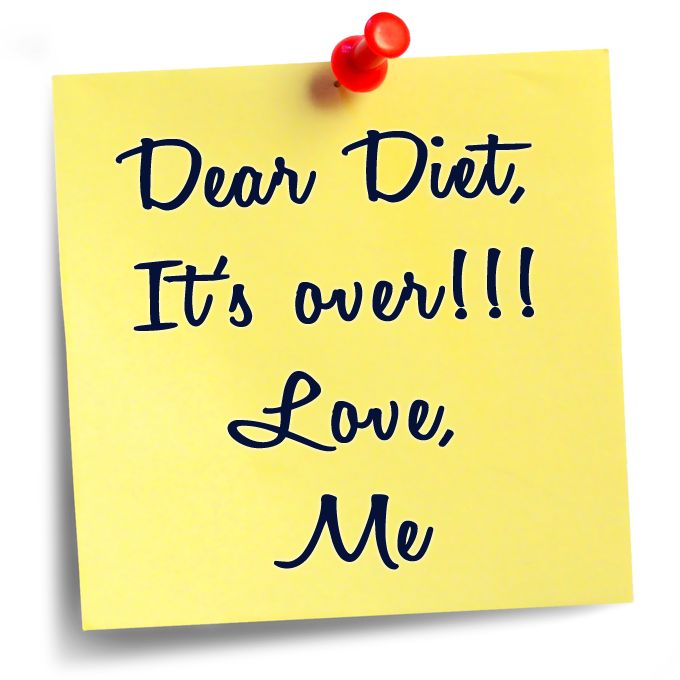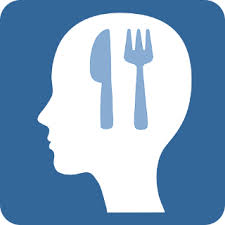Are you struggling with overeating and craving figuring out how to stop overeating start losing weight today?
Overeating during late night fast food runs, uber eats, delivery, or take out; at some point, we have all engaged in one of the above detrimental overeating practices that have ultimately helped lead to the war on obesity in America. In September 2016, a report was conducted by the stateofobesity.org that reported obesity rates are now more than 35% in four states, 30 percent in 25 states and 20 percent in all other states. These alarming obesity rates are often attributed to the “on demand” generation we live in and also the U.S. Department of Agriculture has reported that Americans are eating 20% or more calories than they did 10-15 years ago. This increased consumption has now put a spotlight on America’s obsession with overeating.
What Is Overeating?

At a very early age, many of us watch as our parents overeat during lunch or dinner or engage in mindless snacking in front of the TV. Overeating on food is something we often see and then commit to memory as we bypass our own bodies needs by eating past what our body actually needs. We do this often as both a habit and also a comfort when we’re happy, when we’re sad, when we celebrate, and we even eat when we are feeling defeated. These positive and negative emotions have been in many ways what has led several Americans to engage in over eating.
Overeating has also been found to be linked with the diet/binge cycle that many of us engage in when trying to restrict food in an attempt to lose weight.
A few clear signs of overeating include:
- consistently eating out of relation to physiological hunger and satiation
- you feel 100% satisfied physiologically, but you can’t stop eating.
- you physically need to take a break, but you can’t seem to.
- eating more rapidly than normal.
- feelings of guilt due to eating larger quantities.
- discomfort in your stomach after an overeating episode.
Once you have identified these signs your pathway to recovery can effectively begin.
How Can Overeating Negatively Affect Your Health?
Overeating is a disorder that sadly has the capability to affect not only your physical health but also your mental and emotional health. As mentioned above, overeating occurs at different times for different people. Some overeat because they’re bored, some overeat because they have dieted and feel a sense of deprivation leading to a diet/binge cycle, while others overeat because they are depressed or out of habit.
While overeating impacts every person differently, it does impact every person physically and has the potential to send your whole life on a downward spiral. Here are a few ways overeating can negatively impact you:
- Weight gain and obesity: Generally one of the first symptoms of overeating is excessive weight gain. Excessive weight gain puts the body through a large amount of stress on your muscles because you’re having to carry more weight. During this time you often feel tired and experience an increased amount of muscle and joint pains.
- Decreased Self Esteem: As you gain weight due to overeating, you can expect to deal with decreased self-esteem. In fact, overeating causes many people to lose self-confidence. Sadly, as you lose self-appreciation, you begin to overeat more as a way to help deal with those emotions.
- Emotional Distress: If you often associate your overeating with certain foods, no meal will ever satisfy your needs. Overeating can cause emotional distress because if you often associate a meal with fulfillment, you’ll always depend on your next meal to make you happy.
- Loneliness: When you’re constantly overeating you could easily find yourself entrenched with loneliness. This can be for one of two reasons. One could be because you don’t have anyone to enjoy meals with and another reason could be because being overweight can make you feel isolated.
- Unhealthy Family Relationships: Overeating affects your relationships both on a love and a platonic level. This is generally because those who fall in love with food often fall out of love with their other relationship priorities.
- Health Disorders: Depending on the quantity of extra food you are eating on a daily basis, you may be putting yourself at risk for a variety of health disorders. These health disorders may include but is not limited to: allergies, heart disease, diabetes, high blood pressure, hormone imbalances and a host of other disorders.
- Organ Failure: While organ failure is one of the extreme side effects of overeating it is still an effect. This is in part because the kidney, liver, stomach, and organs all play a pivotal role in digestion and are more prone to disorders in individuals who overeat and over tax these organs.
8 Ways How You Can Avoid Overeating

As babies, we have all been taught how to eat when we’re hungry and also how to stop when we’re full. However, as we get older and transition into adulthood we seem to lose sight and focus on all of the positive things we have learned as it relates to eating and the overconsumption of food.
While eating habits are a learned behavior that can be taught over time, there are still ways in which we can all avoid overeating and here are a few ways how:
- Avoid Getting Overly Hungry
There’s nothing worse than feeling like you’re going to crash if you don’t get something in your body ASAP and when you are overly hungry it is easy to overeat because you don’t have the emotional faculties to relax, slow down and pay attention. So to avoid getting overly hungry, keep some beef jerky, fruit, almonds, or kale chips with you.
I personally choose foods that I won’t overeat on and that aren’t my trigger foods. For me, those include nuts, seeds, and apples. Eating just a few bites of these will tide me over until I can have a conscious meal when time allows. Best of all, after eating a mini snack, I quickly shift into avoiding feeling overly hungry and avoid overeating completely.
- Use the satisfaction scale to determine when to stop eating.
You must learn to recognize the physical satisfaction cues that signal you to stop overeating. Ignoring these satisfaction leads to overeating relatively rapidly so it’s important to make sure you stay in tune with your body’s cue.
Use my satisfaction scale below to help figure out when to end a meal:
Level 5: You're satiated—not full, but not hungry, either. This is the time where you feel a sense of ‘nothingness’ or ‘neutrality’ in your body and this is the precise moment to end your meal.
Level 6: You’ve eaten a few bites too much. When you’ve eaten a few bites too many, you feel this as a slight fullness in your stomach. This is just slightly overeating and eating to a Level 5 and level 6 is your goal.
Level 7: You are full. This is where your body begins to feel slightly uncomfortable and the food no longer tastes as good as it did earlier in the meal. You have overeaten at this point and you might feel it as a slight discomfort in your stomach.
Level 8-9 Stuffed: You feel VERY uncomfortable and might even want to loosen your belt, take a nap and you might even experience heartburn from your stomach acids creeping back up into your esophagus. This is significantly overeating and it feels uncomfortable.
- Mindful Eating is Where it’s At –
To make it even easier on you to stop at a level 5 on the hunger scale, you must include mindful eating.
In the area of cognitive research and habit transformation, changing your practices at mealtime is every bit as important as obsessing over what it is you actually put in your mouths.
Mindful eating has its roots in Buddhist teachings, and the purpose is to connect you more deeply to the experience of eating in a mindful and conscious fashion. As a non-diet weight loss coach, I am a firm believer that slowing down and enjoying your meals in a more intentional fashion is both physically and psychologically essential – especially if for those that overeat and emotionally eat. One study, for example, tracked more than 1,400 mindful eaters and showed them to have lower body weights, a greater sense of well-being, and fewer symptoms of eating disorders.
Here are my favorite ways to include mindful eating into your meals –
- Savor the silence – especially during those very first few bites; which is when your meals taste the absolute best.
- Silence the phone and turn off the TV – BE with your food.
- Use chopsticks to slow down.
- Pay attention to the texture, spices, and flavor
- Eat slower
- Use your non-dominant hand – it will force you to slow down
- Use Forks and Knives
Eating with your hands may seem relatively convenient but it’s an easy way for one to easily overindulge. It’s important to make sure you use your fork and gives when eating. Make sure you put your fork and knife down in-between bites to make sure you’re not only tasting the food but that you’re having a full experience with every bite that you take.
- Concentrate What’s In Your Mouth and Not What’s In Your Plate
When you are enjoying a meal it can be easy to gulp down large amounts of food at one time. This can be particularly dangerous especially during times of emotional eating. As you eat – enjoy the texture, the flavor, the temperature, and enjoy every single bite you take. So often, many of us eat we focus more on what’s on our plate vs. really experiencing our meal one bite at a time.
- Start Small
If you’ve been overeating for a significant amount of time, don’t beat yourself up about it. Everything takes time and it’s better for you if you to start making changes to your eating habits a little bit at a time versus overwhelming yourself with making a drastic eating change.
- Dismiss Feeling Like You Have To Eat Big Meals
While we all know that eating is often a way that people celebrate and come together, you should never feel as if you have to eat big meals every time you come to the table. Instead, start with half as much food as you usually would take and see if that satisfies you. If you’re not able to eat everything that’s on your plate, celebrate! Great job! In fact, when going out to dinner, ask them to bag up half your meal or better yet, share a meal and cut the price of your meal in half. Say this mantra to yourself, “it's so fun and easy to listen to my satisfaction signals”.
- Sit Down
Statistics have actually proven that when you sit down to eat, you tend to eat less. Perhaps this is because you feel more relaxed and less rushed. Plus, you don’t need to pick at food in the refrigerator or in the pantry. If you are an advocate of eating on the go or simply eating while standing up because there’s no room for you to eat at the table, you are more inclined to each much more food. Proximity to the buffet and refrigerator have also been key components linked to overeating.
Overeating Does Not Have to Be Your Reality, Forever
While overeating continues to be a growing trend, it does not have to be your reality. In fact, the sooner you are able to recognize your overeating habits, the sooner you have the ability to correct them.
By determining why you are overeating is the first step to overcome it. Once you have determined what has led to your patterns you can easily begin to work on how you can replace those eating habits with more healthier habits such as exercising, reading, watching television or perhaps even going to a mental health specialist.
If you have no idea how to figure this out on your own, this is what we do every single day with our clients. We help them understand and determine what is at the core of their overeating patterns and lead them to have a normal and relaxed relationship with food so that they can get on with their lives and do the things they love.
Whatever the case may be, your destiny is in your hands and if you want to stop overeating, you must first decide within yourself that you’re ready to make a change.
Have you struggled with overeating in the past? Have you found tricks that have helped you develop a healthy relationship with food? We want to hear about it! Leave a comment below and if you're new to ThinWithin.com and you'd like to receive an End Overeating Strategy Session, click HERE.







Leave A Comment